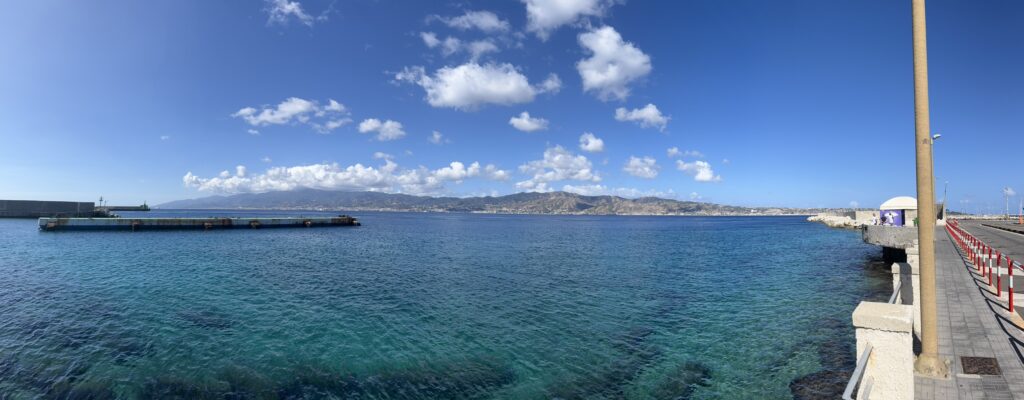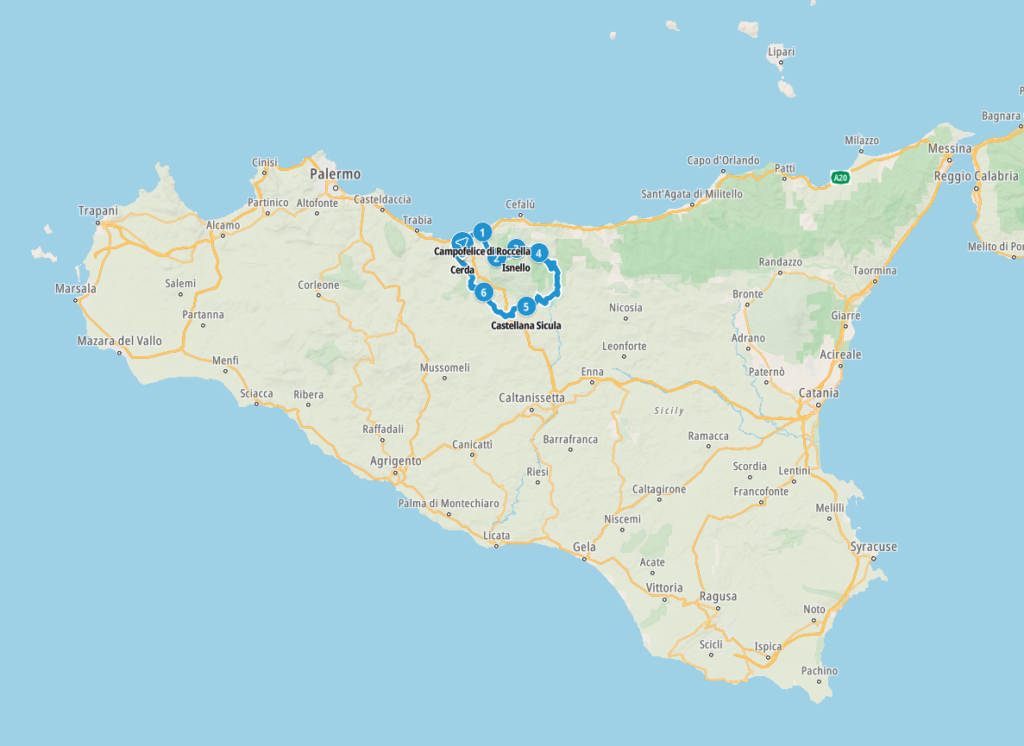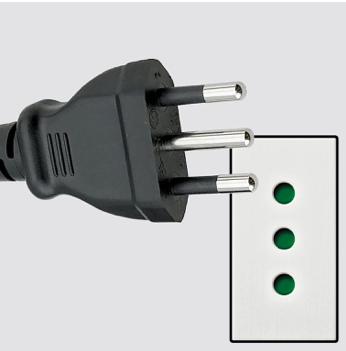Sicily – Let’s explore here
What’s it like in Sicily?
Sicily is simply incredible! The largest active volcano in Europe, Mount Etna sits in Sicily, 11,014 ft (3,357 m) above sea level. Sicily is part of Italy, and is a large island that’s located at the very south west of the Italian mainland, separated by the Straits of Messina. At its narrowest point, the Straits are only 1.9 miles (3.1 km) wide, although the cost of the ferry doesn’t reflect this short distance!! The island is home to approaching five million people (2024), making it the most populous island in the Mediterranean.
The simply fantastic Targa Florio rally route; the world’s oldest sports car racing event; is located in north central Sicily. It takes you on a journey through some of the most beautiful villages and around some of the best roads in all of Italy.


A bit about the history of Sicily
Early History and Ancient Settlements
Sicily has a rich and diverse history dating back thousands of years. The island was first settled by the Phoenicians around the 8th century BC. Over time, the island was influenced by several ancient cultures, including the Greeks, who colonised Sicily starting in the 8th century BC. The Greek city-states established powerful colonies like Syracuse and Selinunte.
Roman and Byzantine Rule
In 241 BC, after the Punic Wars, Sicily became the first province of the Roman Empire. Under Roman rule, the island thrived economically, particularly due to its agricultural production. After the fall of the Roman Empire, Sicily became part of the Byzantine Empire and remained under its control for several centuries.
Arab and Norman Periods
In the 9th century, Arab forces from North Africa conquered Sicily, bringing significant cultural, agricultural, and scientific advancements. The Arabs introduced new farming techniques, irrigation systems, and the cultivation of crops like citrus fruits. In the 11th century, the Normans from northern Europe took control of Sicily, creating the Kingdom of Sicily. Under Norman rule, the island became a prosperous and multicultural society, with Christian, Arab, and Jewish communities living side by side.
Swabian and Aragonese Rule
In the 13th century, Sicily fell under the control of the Hohenstaufen dynasty (also known as the Swabians). The kingdom was later inherited by the Aragonese after the War of the Sicilian Vespers in 1282, leading to a period of Spanish influence. Sicily remained under Spanish rule for several centuries, and its culture and politics were deeply shaped by Spanish traditions.
Bourbon Rule and the Unification of Italy
In the 18th century, Sicily became part of the Kingdom of the Two Sicilies, ruled by the Bourbon monarchy. During this time, the island experienced both cultural flourishing and economic challenges. In the 19th century, the rise of the Italian unification movement, led by figures like Giuseppe Garibaldi, led to the fall of the Bourbon monarchy. Sicily was incorporated into the newly unified Kingdom of Italy in 1860.
20th Century and Modern Sicily
During the 20th century, Sicily experienced significant economic struggles and social unrest. The island was heavily impacted by both World Wars, and the economic disparity between the north and south of Italy became more pronounced. After World War II, Sicily was granted autonomy as a region within Italy. This provided the island with a degree of self-governance over local affairs.
In the post-war period, Sicily became known for its involvement with organised crime, particularly the Mafia, which had a significant influence on local politics and society. However, Sicily has also worked to overcome these challenges and promote economic development, particularly through tourism, agriculture, and cultural heritage. Today, Sicily remains an important cultural, historical, and economic region of Italy, known for its rich history, beautiful landscapes, and unique blend of cultural influences.


Sicily road trip
In 2024 we travelled through Sardinia, having explored Corsica, both islands of which were long time ambitions for us. We were initially going to take the ferry from Sardinia on to Sicily, as we made our way to Malta, but the ferry only runs once per week and was full for cars … we’d left it too late!!! That’s what can happen when you don’t know exactly when you’ll be travelling, and when you don’t want to rush your travels.
In the end we travelled from Sardinia to Naples in mainland Italy, and down to southern Italy, before getting the ferry to Messina in Sicily. Our Sicilian road trip was part of a much larger European road trip, and involved several ferry journeys:
Ferries to and from Sicily
The ferry from mainland Italy to Sicily
The car ferry to Messina in Sicily goes from Villa San Giovanni on the mainland. There are many, many ferries every day that make the crossing, and the journey only takes around twenty minutes. It’s so short you can remain in your car should you wish to.
We travelled with Caronte & Tourist ferries and booked online. There is an electronic barrier on the road just prior to the port, where you can present your QR code, so as to reach the ferry. Unfortunately all of the instructions are only in Italian. That said, an attendant who spoke English was there to help should you require it.



The ferry from Sicily to mainland Italy
On our way back from Malta, we travelled back through to Villa San Giovanni in mainland Italy via Messina, before heading up to San Marino and on to the Italian Alps and Austria.
We travelled with Caronte & Tourist ferries and booked online again. There is no electronic barrier at the port on the Sicilian side – an attendant with a handheld scanner scanned the QR code whilst we remained in our car.
Again, there are many, many ferries every day that make the crossing, and the journey only takes around twenty minutes. It’s so short you can remain in your car should you wish to.
There was a huge ongoing storm when we crossed that caused massive flooding throughout Italy and Sicily. Yet the crossing was not greatly affected, and felt slightly choppy at worst!

The ferry to Malta
Driving to Malta involved us taking the ferry from Pozzallo in Sicily, Italy to Valletta, Malta. Actually, rather than a ferry, it was a catamaran, and a rather posher experience than many other Mediterranean ferry rides! The journey only takes 1¾-2 hours, so there are no cabins. There were hardly any passengers on the ferry in mid October, the food was decent and the seats reclined and were very comfortable. You could even see clearly out of the windows, which was a bonus 😉


Our Sicilian road trip route
Having arrived in Messina, we took to the hills away from the toll roads and followed the north coast to lovely Capo d’Orlando and the amazing Targa Florio. Heading through central Sicily, we arrived on the west coast at Marsala and made our way south towards the port city of Pozzallo.
On our way back from Malta, a huge multi-day storm has battered mainland Italy and Sicily, and many places were flooded. Some were off limits altogether due to police roadblocks. Tens of thousands of volunteers had been mobilised to try to normalise the situation. We did manage to ascend the mighty volcano Mount Etna though, despite the storm, before heading back to Messina and the mainland.
Map of our road trip through Sicily

Our road trip through Sicily went from Messina – Capo d’Orlando – Targa Florio – Corleone – Marsala – Sciacca – Agrigento – Piazza Armerina – Pozzallo – Syracuse – Catania – Cratères Silvestri – Taormina – SantʼAlessio Siculo – Messina
The Targa Florio
In Sicily, we drove the magnificent Targa Florio rally route. If you’ve not done it, put it on your list of things to do, because it’s amazing! Not only are the roads amazing, but the gorgeous villages, and the supreme scenery are amazing!
Map of our road trip on the Targa Florio

The Targa Florio rally route:
Cerda – Campofelice di Roccella – Collesano – Isnello – Castelbuono – Castellana Sicula – Caltavuturo – Cerda
Our favourite places in Sicily
These are some of the best places that we explored on our road trip through Sicily. We’ve put them in alphabetical order.
Acquasanta
Acquasanta is a small village in the high hills in north east Sicily overlooking the Gulf of Patti. The island of Vulcano lies about 12 miles (20km) north of the village, and can be clearly seen on a nice day. Vulcano is the third largest of the Aeolian Islands that lie off the north east coast of Sicily. The word ‘volcano’ comes from this island.


Agrigento
Agrigento is an ancient town on the south west coast of Sicily. It contains many ancient Greek and Roman temples and wonders, many of which are still being excavated. It’s very popular with tourists and extremely busy, even out of season, with lots of coach loads of people.



Caltavuturo
Caltavuturo is a small town in northern central Sicily, dominated by Sciara Rock. The town has a 9th century castle, named Terravecchia castle.





Campofelice di Roccella
Campofelice di Roccella is a lively, small town in the centre of the north coast of Sicily. It’s very popular among tourists and locals alike for its long beaches. It’s also part of the Targa Florio circuit.

Capo d’Orlando
Capo d’Orlando is a lovely tourist town on the north east coast of Sicily. It has great beaches as well as great views of the Aeolian Islands that lie off the coast.




Castelbuono
Castelbuono is a lovely little town in the mountains in north central Sicily, on the Targa Florio. It’s located 1,388 ft (423 m) above sea level. The town is dominated by its 14th castle, the Castello del buon aere (the castle of good air).

Cefalù
Cefalù is a beautiful, ancient town in the centre of the north coast of Sicily. It’s one of the major tourist destinations in Sicily, with several beaches. The town is dominated by a 885 ft (270 m) high limestone cliff, the Rocca di Cefalù.


Collesano
Collesano is a lovely small town north of the centre of Sicily in the Madonie Regional Natural Park. It lies on the Targa Florio route and the museum for the race is located in the town.


Corleone
At first glance, Corleone appears to be a typical bustling Sicilian town, located in west central Sicily. However, it’s hugely famous as the home of ‘The Godfather’ in the book and films of the same name. The novel and films are fiction, however, in reality multiple mafia leaders have actually come from Corleone, including some of those most violent.




Etna
Mount Etna is an amazing volcano on the east side of Sicily. It’s one of the most active volcanoes in the world. It is MASSIVE, at around 11,165 ft (3,403 m) above sea level – that’s 2½ times the height of Mount Vesuvius in Naples! Its circumference is 87 miles (140 km). It is AWESOME!
When we were there it had not long erupted, and at the summit we found ourselves inside another storm cloud, with thunder booming all around us, and lightning striking the ground very close to us! We decided to make our way back down the volcano as quickly as we could. But on the way the heavens opened and we found ourselves driving through streams and then shallow rivers, whilst navigating the serpentine road. At one point, it was simply too deep for us to continue, so we parked off road away from the torrent. Luckily a large Toyota Hilux came down and we jumped in behind their wake to escape. It was an exciting but hairy ride that we’ll never forget 🙂




Geraci Siculo
Geraci Siculo is a very pretty village in the Madonie mountains in north central Sicily, on the Targa Florio. It’s located 3,517 ft (1,072 m) above sea level. It’s also very popular with tourists as it’s been named one of one of Italy’s most beautiful villages and it’s easily accessible by coaches.

Isnello
Isnello is a small village in the mountains in north central Sicily, on the Targa Florio. It’s located 1,740 ft (530 m) above sea level, and some of the tiny roads in the village are difficult to navigate, even with a small car! Best to ignore any sat nav instructions and ask locals for help if you get lost 😉

Lercara Friddi
Lercara Friddi is an ancient town that used to be the centre for sulphur mining. Today its focus is agriculture. It’s located west of the centre of Sicily.

Marsala
Marsala is a beautiful city on the west coast of Sicily, famous for Marsala wine. The mountainous Egadi islands, occupied since prehistoric times, lie just off the coast, providing a lovely view from the coast.







Messina
Messina is a bustling, ancient city of around ⅔ million people (2023) on the north east coast of Sicily. It is also the very busy ferry port to the mainland.


Naxos / Giardini Naxos
Naxos was an ancient city settled by ancient Greeks from Naxos in Greece around 735 B.C. Giardini Naxos is the modern town that is located on the ancient city of Naxos on the north eastern coast of Sicily. The town is a now very popular tourist resort. When we were there, a major storm had just passed through, flooding many areas non the east coast of Sicily, and we were at the tail end of it.


Petralia Soprana
Petralia Soprana is a very pretty village in north central Sicily, on the Targa Florio. It’s popular with tourists as it’s been named one of one of Italy’s most beautiful villages.

Petralia Sottana
Petralia Sottana is home to the headquarters for the magnificent Madonie Regional Natural Park. It’s a small town in north central Sicily, on the Targa Florio.

Piazza Armerina
Piazza Armerina is an 11th century Norman town located in south central Sicily, full of lovely architecture.





Pozzallo
Pozzallo is the main port linking Sicily with Malta. The town has some lovely beaches, and the people are super friendly.

Prizzi Lake
Prizzi Lake is an artificial lake created by the damming of the Raia river gorge. It’s located in west central Sicily close to the Rocche San Felice.

Rocche San Felice
The San Felice Rocks are an interesting collection of rocks that stand 2,644 ft (806 m) above sea level. They are located in west central Sicily close to Prizzi lake, and they reminded us of megalithic structures such as Stonehenge in the UK or Ħaġar Qim in Malta.

SantʼAlessio Siculo
SantʼAlessio Siculo is a small coastal town located on the north east coast of Sicily. Favoured by locals for its lovely beach and 11th century castle, it’s far from the madding crowd of tourism.

Santo Stefano di Camastra
Santo Stefano di Camastra is a small town on the north east coast of Sicily. Along with a few other towns and villages in the area, it is a centre of amazing ceramics, both huge and small.


Sciacca
Sciacca is a beautiful, ancient, harbour town that sits on the south west coast of Sicily. It’s very popular with tourists and locals alike, and has lots of great restaurants and cafés.






Targa Florio
The Targa Florio race is magnificent. It’s the oldest sports car racing event in the world, starting in 1906 by Vincenzo Florio. The race initially circumnavigated all of Sicily, but was eventually reduced to a smaller, more spectacular circuit around the Madonie mountain range, 45 miles (72 km) in length. A map of the circuit is included earlier on this page.








Tindari
Tindari is a small village on the north east coast on Sicily, facing the Tyrrhenian coast. There are various Roman remains that are still being excavated at the site, as well as a majestic church that can be seen for miles around, the Basilica Sanctuary of the Blessed Virgin Mary.


What’s it like to drive in Sicily?
As with almost everywhere on the continent of Europe, they drive on the right hand side of the road in Sicily.
Driving in Sicily
For the most part driving in Sicily is a fairly laid-back affair due to the amount of traffic between most town and cities being fairly low compared with traffic in the UK. Sicilian drivers do tend to be pretty poor at driving in general though, wandering about and over lanes as if there’s an issue with steering! Road signage can be pretty hit-and-miss too, and often signs are placed only where you can see them at the last moment, or only facing the opposite traffic!

Driving in Sicilian villages and old towns
Sicily has some of the most beautiful villages in all of Italy, and some are very ancient. Because of this, many of the roads were not designed with cars in mind. The roads in some villages and towns are incredibly narrow with hairpin bends, and very difficult to navigate, hence most Sicilians having tiny cars! Additionally, residents of the small towns and village park in the very narrow streets, making it impossible to travel on some streets, meaning you may have to reverse around the impossible streets 🙂 We found that it’s best at these moments to relax, laugh at the predicament and try your best not to damage your car 😉
If you enjoy tricky roads the SP132bis from Case Pileci to San Giorgio in north east Sicily is a treat, especially when you’re travelling down the steep, single track road, and the person coming up hill towards you is driving too fast and then won’t move 😉
Road conditions in Sicily
Road conditions in Sicily vary quite considerably. Around the main coastal routes, they’re well maintained. However in the centre of Sicily, many of the roads are extremely poor, with sink holes, land slides, warped / melted / swollen tarmac, massive pot holes across the whole road, hidden pipes causing large humps in the road. Aside from Armenia and Albania, they are some of the worst roads we’ve encountered – comparable with poor roads in Serbia.
Lay-bys in Italy
Unfortunately Lay-bys in Sicily tend to be rather depressing places full of litter 🙁 We love Sicily, but this really is one of the worst things about the island.
Do you require an international driving permit in Sicily?
We’ve created a dedicated page to driving abroad, which answers this question, and more, which you might find helpful.
Can you use your UK driving license when driving through Sicily?
We’ve created a dedicated page to driving abroad, which answers this question, and more, which you might find helpful.
Do I need a carnet de passages to drive in Sicily?
We’ve created a dedicated page to driving abroad, which answers this question, and more, which you might find helpful.
What are the speed limits in Sicily?
The speed limits for cars in Sicily are:
- 30 mph (50 km/h) for urban driving
- 45 mph (70 km/h) outside of built up areas
- 55 mph (90 km/h) on dual carriageways
- 70 mph (110 km/h) on motorways
What currency do they use in Sicily?
In Sicily they use the Euro. The use of credit / debit cards is now widespread. Travellers cheques are accepted. There are lots of ATMs.
You should make yourself aware of the amount that your bank charges you for using credit and debit cards abroad. Often credit cards are cheaper for purchasing items directly, and for withdrawing cash from ATMs.
What language do they speak in Sicily?
They speak Italian in Sicily. English is spoken widely in tourist areas, but not in rural areas.
What time zone is Sicily in?
Remember, when you’re planning your next trip to take a look at what time zone it’s in.
Do I need a visa to visit Sicily?
Remember, Sicily is part of Italy. We’ve created a dedicated, more comprehensive page on visas, which you should find helpful. Check it out!
Is wild camping legal in Sicily?
Wild camping is generally tolerated for single nights in Sicily, although you should avoid national parks and natural reserves.
What plug / socket type do they use in Sicily?
In Andorra they use plug / socket types F and L.


Health issues in Sicily
Is it safe to drink water in Sicily?
It is not safe to drink tap water in Sicily. Bottled water is also readily available across the country.
What vaccinations are required for Sicily?
This NHS website is kept up to date with all relevant information on vaccinations in Sicily.
Phones in Sicily
What is the country calling code for Sicily?
The country calling code for Sicily is +39
What are the emergency phone numbers in Sicily?
- The emergency number for police in Sicily is: 112
- In Sicily, the emergency number for ambulance is: 112
- The emergency number for fire in Sicily is: 112
If you’ve got some useful info that you’d like to share, let us know!
Don’t forget to check out all the other pictures!
